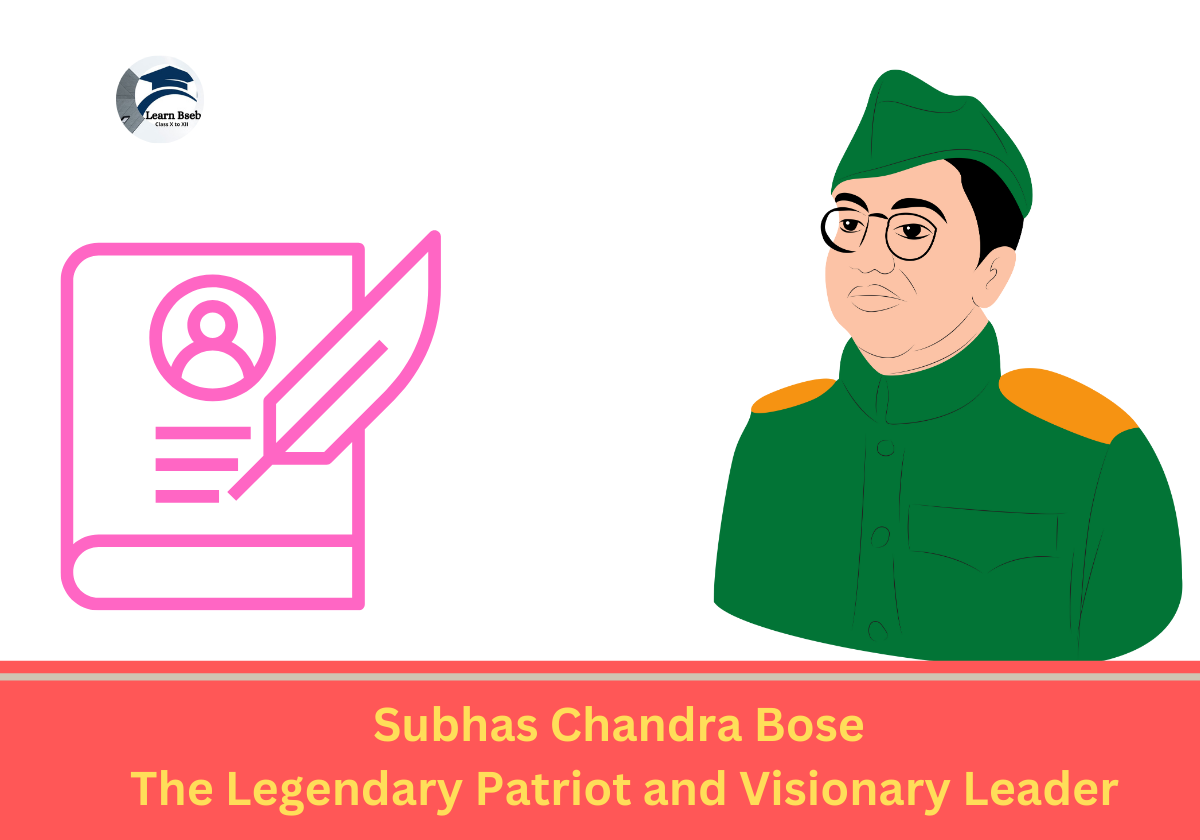The Legendary Patriot and Visionary Leader
Netaji Subhas Chandra Bose is renowned as one of the prominent leaders and fighters who took part in India’s struggle for independence. He made headlines for his leadership skills and his people-centric policies. He was born on January 23, 1897, in Cuttack, Odisha. His extreme devotion towards his nation set him apart from others and made him a great figure among other Indian revolt leaders. His life was full of struggles as he fought for India’s freedom, indomitable spirit, and love for his people.
The Early Years: Childhood and Career
9th of 14 children in line, Subhas Chandra Bose was raised in a family that consisted of educated professionals. His mother, Prabhavati Devi was a housewife and his father, Janakinath Bose was a lawyer. Bose attended the Ravenshaw Collegiate School and then moved to Calcutta to pursue his higher academics at Presidency College. He was a child who was always disciplined, highly intelligent and determined.
In 1919, Bose travelled to the United Kingdom to take part in the Indian Civil Service (ICS) exam. Who knew he would get fourth position, even with that achievement and dignity, he felt that his calling was not serving the British Government but for his country. Thus, in 1921, he severed ties with the ICS, which showed how determined he was towards standing against the British rulers, allowing him to take the step of becoming Netaji Subhash Chandra Bose after this point.
Political Journey and Revolutionary Ideas
Commencing his political career as part of the Dian National Congress (INC), Bose was greatly influenced by the nationalist leader, Chittaranjan Das. It was not long before Bose’s ideas and charisma attracted attention and he emerged as a notable member of the party. He was taught by Swami Vivekananda and wanted to blend faith and action to free India.
Bose was elected president of the INC in 1938. Unfortunately, his radical views and stress on violence for conflict resolution were at odds with those of Mahatma Gandhi and many others in the Congress who believed in peaceful coexistence. In 1939, Bose detached himself from the role of the president of Congress and created the Forward Bloc- a party that set out to unite all the factions on the left and advocate for the independence of India.
Just Like Subhash Chandra Bose: The Call for Action
Bose’s view of acquiring freedom from British colonial rule was through active involvement and not the non-violent approach. His famous phrase “Give me blood and I will give you freedom” moved a huge number of Indians to struggle. Netaji Subhash Chandra Bose was an ambitious man who dreamed of liberating and transforming bringing forth Women and Child Development in India.
Formation of the Indian National Army
The establishment of the Indian National Army (INA) in 1943 formed the foundation of Subhas Chandra Bose’s glory achievements. Bose worked to free India by waging war and was able to receive assistance from Japan and Germany during World War II. The INA or the Azad Hind Fauj was made up of Indian soldiers who were captured by Japan in the course of the war.
In 1942, Netaji Subhash Chandra Bose proclaimed the creation of the Provisional Government of Free India and authorized the INA to fight the British in the Indo-Burma theatre. Even if the plans of the INA’s campaigns had setbacks, Bose’s great deeds revived the independence spirit and proved that he possessed great military genius.
Legacy and Disappearance
Several Indian ago actor Subash Chandra Bosh became a household name But due to Commotion surrounding Jawaharlal Nehru, he continues to remain an enigmatic figure. According to various accounts, Bosh was on a plane that crashed on the Bank of Taiwan on the eighteenth day of August nineteen fort five, uttering the plane’s statement changed his lifetime and many others. Nevertheless, his legacy of fearlessness as a patriot of I India continues to send a thrill through generations.
It is safe to say that Bose’s life exemplifies unfettered conviction and a strong inclination to sacrifice oneself for a greater cause. His concept of India as a free nation was not confined to political boundaries but encompassed an aspiration for the country that would be looked upon as a model of empowerment and equity as well.
Conclusion
In the same vein, he has also inspired numerous leaders and revolutionaries to pick up the baton and continue this legacy. FOR EXAMPLE, His fierce dedication towards securing India’s independence, his vision of revolution and his appeals to the people are valid today. As Indians commemorate every 15th of August, remembering the life and struggles of freedom fighters as well as the country’s heroes, provides the perfect opportunity to note the courage and determination in the defence of justice and liberty in history which Netaji Subhash Chandra Bose represents.
Indeed, the legacy of Subhas Chandra Bose shows no expiry date and as such he is a source of patriotism and leadership for the present generations keen to learn from him. What stands out in the ideology of Netaji Subhash Chandra Bose is his all-consuming devotion to the nation and this single quality would be enough to rally countless generations of his descendants for centuries.

